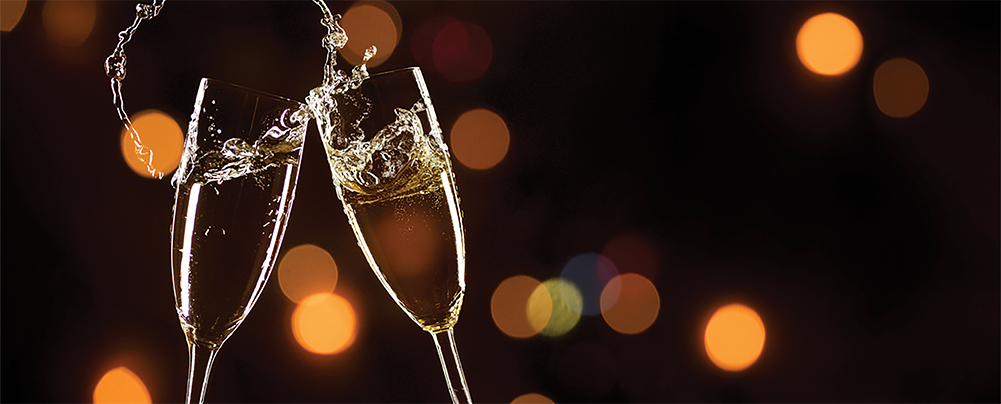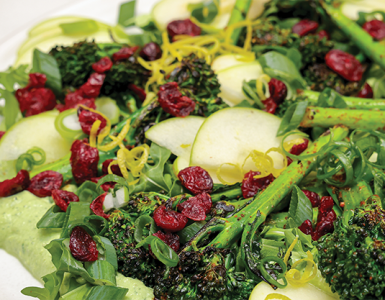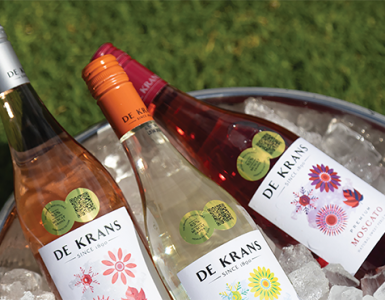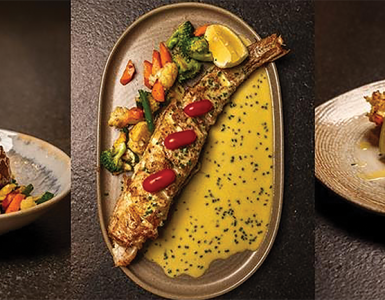SHAPE: Pierre-Emmanuel Taittinger insists Champagne is “above a wine” and should always be served in a flute – yet sommeliers speaking to the drinks business say the iconic shape may no longer suit the way we drink fizz today…
By James Bayley
“For me Champagne must always be drunk in a flute and never in a wine glass. It is above a wine. It’s like a bow tie in life, a butterfly,” Pierre-Emmanuel Taittinger told The Times in 2024. His words reflect how deeply the flute has been woven into the image of Champagne: celebratory, ceremonial, and instantly recognisable.
But a recent Telegraph feature suggested the flute’s dominance is waning. It quoted leading glassmaker Maximilian Riedel, who aims to make the design “obsolete within my lifetime”, arguing that narrow flutes inhibit aromas and mute flavour. Sommeliers who spoke exclusively to the drinks business indicate that this transition is already well underway.
Harry Cooper, general manager and head sommelier at London’s Counter 71, told db that flutes have been absent from his restaurant from day one. Instead, he built the wine service around four varietal-specific glasses, including Riedel’s Veloce English Sparkling glass, originally designed for Riesling. Since opening two years ago, only one guest has ever asked for a flute.
“The glass is designed to maximise aromatic enjoyment,” Cooper explained, “dispersing aromatics across the palate as opposed to a flute which narrowly channels aromatics over the middle of the tongue, missing out on the sweet, salty and sour receptors located from the tip and around the edges.”
He described how guests are actively encouraged to consider how different shapes affect the wine’s development, something he believes adds theatre to the experience.
“I regularly see guests really getting into the theatre of wine,” he said. “I don’t think this would be as common or comfortable for the guest if we had never progressed from serving in a flute.”
From a service perspective, Cooper sees little reason to return.
“I personally don’t see many advantages to serving a glass of wine in a flute, hence why we don’t have any. From the larger glass perspective, points like pour accuracy, drink temperature, and guest expectations are simply skills a sommelier should have. With experience, training and communication, they’re easy to overcome.”
Not every venue has gone quite so far. At Town, in Covent Garden, head of wine Merlin Ramos recognises the ceremonial resonance of the flute, telling db: “The flute speaks to people in a ceremonial way, like the Champagne coupe before… think The Great Gatsby, Poirot. To some extent, this is important.”
He pointed out that the coupe rose to prominence when Champagne was sweeter and less fizzy, with the flute evolving to emphasise bubbles.
“We enjoy Champagne in a more convivial way now,” he said, “and it’s not just a celebratory drink, but a gastronomic drink, a drink that covers a wide range of flavour and enjoyment.”
Town uses a wider-based Riedel flute with greater surface area than a straight-necked version. For vintage wines or those with notable finesse, Ramos opts for a thin-stemmed, wide-bowled glass such as the Jancis Robinson/Richard Brendon design: “If you have vintage Champagne, or something with real finesse, a thin-stemmed, wider surface area glass is always going to win.”
For Gearoid Devaney MS, director at fine wine merchant Flint Wines, the shift has improved both guest experience and service flow. “There’s nothing new about wine-focused restaurants serving prestige cuvées and other top Champagnes from larger glasses, but it’s definitely become more widespread across the on-trade,” he told db.
“Clients today are more aware of the advantages of a larger glass.” Cabotte, the City restaurant of which Devaney is also director, now pours certain Champagnes into the L’Esthète by Sydonios, a versatile glass suitable for still and sparkling wines.
“The feedback has been overwhelmingly positive,” Devaney said. “It gives staff an extra opportunity for positive interaction with clients, to explain how glassware can enhance a wine. It might also allow a restaurant to consolidate the range of glasses they use if the same model works for both sparkling and non-sparkling wines.”
Still, Devaney acknowledges that some guests remain attached to the theatre of the flute. “Though we might suggest an alternative, if the client wants a flute – because they find it adds to the sense of ceremony – who are we to argue?”
Some venues retain the flute for pragmatic reasons. At Sam’s Riverside, bar manager Ivan Ramos told db: “On most occasions, Champagne is a welcome celebratory drink, where guests will chatter away and clink glasses. Champagne served in a flute will be more difficult to spill due to its narrower opening. In addition, Champagne served in coupes will get warmer and flatter quickly than in flutes, and no one wants a warm and flat fizz.”
At Cuvée in Glasgow’s West End, Courtney Flynn embraces choice rather than uniformity. “When it comes to Champagne, personal preference is key,” she said. “That’s why we offer guests the choice of a coupe or a flute. The coupe brings vintage glamour and 1920s sophistication, while the flute is classic, keeps the bubbles dancing and adds to the celebratory theatre. Offering a choice enhances the experience – it invites conversation, gives a sense of luxury, and ultimately keeps the guest in control.”
Flynn recognises the benefits of larger wine glasses for aroma and upselling potential, but notes a limitation: “125ml can look a little lost in it. It might suit some settings, but we’ve found that offering a choice enhances the experience.”
Sommeliers appear to be united on one point: Champagne deserves to be treated with the same respect as still fine wines, with glassware chosen to enhance expression rather than preserve tradition for its own sake. The flute may still symbolise celebration, but to many in the trade, it symbolises a bygone era.
Taittinger may still see the flute as a bow tie, but in modern restaurants it is being replaced by something freer, more aromatic and, perhaps, better suited to how we enjoy Champagne today. – Source: db
EVENTS
MPUMALANGA WINEX IN MBOMBELA
The Standard Bank WineX Mpumalanga opened at Emnotweni this evening, with the addition of a lunch session on the tomorrow afternoon to precede tomorrow night’s show.
Wine enthusiasts enjoyed a treat, discovering new delights and revisiting timeless classics at the show this evening. Close to 40 exhibitors will present a line-up of nearly 200 wines, including bubblies, crisp whites, bold reds, and dessert wines.
Experience the rich reds of The High Road, Rupert and Rothschild and Glen Carlou, the whites of Klein Constantia and Durbanville Hills, and bubblies from Haute Cabrière and Simonsig Wine Estate.
The venue is Emnotweni Arena, Riverside Park, Mbombela (Nelspruit). Show times are: tonight and tomorrow (17h00 – 21h00); and an extra session: tomorrow (11h00 – 15h00), no first entry after 14h00. Ticket prices are R275 (include tastings and wine tasting glass). Standard Bank credit and evolve card holders enjoy a 30% discount, and cheque and debit card holders get 10% off when purchasing online.
WINE TALK CONFERENCE
Johannesburg is to host the first-ever wine conference on August 6 to set the stage for a conversation that recognises the city as South Africa’s largest wine export market.
The conference’s main objective is to spark ideas, challenge norms, and reflect on the city’s bold energy.
The organisers say it’s time Joburg had its own voice in the national wine conversation, and the indaba is here to set the stage
Hosted by winelab.Africa, the one-day conference will take place at Atlas Studios, 33 Frost Avenue, Braamfontein Werf in Johannesburg, and starts at 9am.
It aims to ignite fresh dialogue, build bridges between industry and consumer, and spotlight the cultural and economic importance of Gauteng in South Africa’s wine story.
The conference is set to bring the Swartland Revolutionaries, Eben Sadie, Callie Louw, Andrea & Chris Mullineux, and Adi Badenhorst to Gauteng as a collective for the first time. It is centred on the theme of disruption and reinvention and built around three independent events on the day: a day-time conference, a walk-around Swartland tasting, and a tutored Swartland seminar hosted by “the Revolutionaries”.
The conference, which takes place from 8,30am and 4pm, comprises a full day of panel discussions, keynote speakers and debates featuring producers, sommeliers, educators, marketers, and media voices. Topics include: Adapting to shifting consumer behaviour; Wine’s generational disconnect; Gauteng as SA’s wine consumption capital; The Swartland Evolution: disruption as a blueprint; Storytelling, education, and transformation in fine wine. Tickets cost R1,995 (includes access to Taste Swartland & take-home Gabriel-Glas wine glass).
The second segment of the day, Taste Swartland, takes place between 4pm and 7,30pm. Costing R775 a person, it will be a walkaround tasting featuring 24+ Swartland producers, offering an opportunity to taste with the winemakers behind SA’s most celebrated region. AA Badenhorst Family Wines, Allesverloren,
The Blacksmith, City on a Hill, Dalkeith, FRAM, Intellego, Kloovenburg, L’Equinox, Leeuwenkuil, Mullineux, Paulus Wine Co, Vino pH, Porseleinberg, Riebeek Wine Co, Sadie Family Wines, Steilpad, Swerwer Wines, Terracura, Testalonga, The Vineyard Party, Thor Vinters, Thorne + Daughters, Vine Venom, Yellowwood.
Another session, themed Swartland 101 and to be held from 6pm and 7,30pm, A tutored tasting and seminar hosted by Swartland icons Eben Sadie, Adi Badenhorst, Callie Louw, and Chris & Andrea Mullineux, moderated by Victoria Mason MW.
Tickets to the event cost R1,825 (includes Taste Swartland & take-home Gabriel-Glas wine glass).
Tickets available via winetalk.joburg.
TASTE OF TERROIR
Taste of Terroir, a red wine soirée featuring a special Pinotage tribute and red wines from across the Durbanville Wine Valley, will be held on August 8.
Durbanville Wine Valley winemakers will pour their finest red wines showcasing rich flavours and unique characteristics of this cool-climate region, all while visitors mingle with the passionate creators behind the bottles.
Taste red wines from 9 local producers, poured by the winemakers themselves. Enjoy live music by Emile Swiegers and three seasonal canapés by Kos Kouture.
A highlight will be the first tasting of the limited-release Durbanville Pinotage – a tribute to 200 years of Durbanville, 100 years of Pinotage and 100 years of Afrikaans.
The venue is Loch Lynne Wine Estate on Koeberg Road, Durbanville Valley. Dress to impress in shades of blue. Tickets cost R300 a person via Quicket.
WOMEN IN WINE FEST
Women in Wine Mini Festival will be held in Sandton on August 9, to celebrate Women’s Day.
Visitors will experience a delightful wine tasting featuring exceptional female-owned wine brands that are reshaping the South African wine industry. The event will be hosted at Wine Menu, 3 Desmond Street, in Kramerville. It will honour remarkable women who contribute to the growth and creativity of South Africa’s vineyards.
Discover incredible wines crafted by talented female winemakers and producers. Each bottle tells a story of passion, dedication, and resilience. Engage with innovators, and people who represent these brands, and wine chats with some of Joburg’s top wine people as well as a few winemakers. Featured producers include Atlas Swift, Botanica, Catherine Marshall, Erika O, The Garajeest, Hogan, Il Geco, Lelie Van Saron, McFarlane Wines, Momento, Pieter Ferreira (Actually Ann), Saurwein, Thistle and Weed, Wolf and Woman, Saltare, and Vonn. Tickets cost R100 a person. It starts at 11am.. – Compiled by Len Maseko































